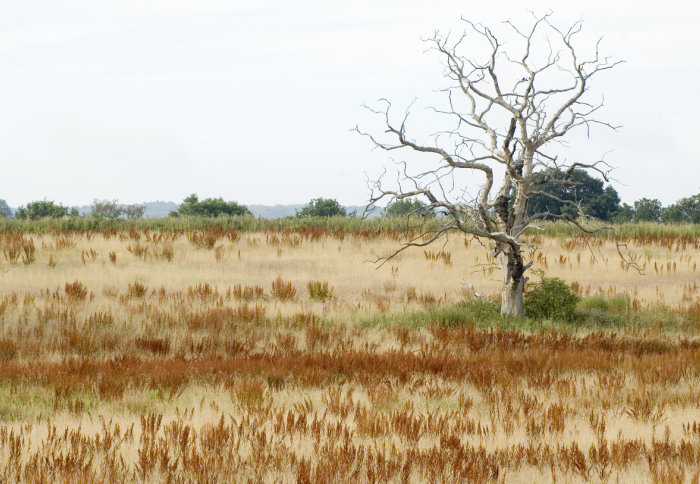“Hotter places are hotter, extreme rainfall is more extreme"

As the global heatwave continues, Imperial academics comment on the impact of climate change on extreme weather.
Unusually high temperatures have been affecting large areas of the northern hemisphere during the summer of 2018.
Comparisons have been made between the current heatwave and the record-breaking temperatures of 1976, which led to one of the most significant droughts of climate records.
Professor Sir Brian Hoskins, Chair of the Grantham Institute – Climate Change and the Environment, one of Imperial’s global challenge institutes, said that the chances of extreme weather events like we are currently experiencing, are much greater now than they were 40 years ago.
“We have a warmer world than we did in 1976 because of the greenhouse gases we have added to the climate system,” he said when speaking to the BBC. “The world is warmer by a degree or more, so the chances of this kind of event are much higher now than they were then.”
If we go on emitting greenhouse gases, we are going into the unknown of what sea level rise might be. Professor Sir Brian Hoskins Chair of the Grantham Institute
Professor Hoskins also discussed the impacts of a warmer world on extreme weather events and sea level rise.
“As the world warms, the ocean expands a little and the ice melts at the poles, contributing to sea level rise. We just don’t know how the melting of the ice may accelerate. If we go on emitting greenhouse gases, we are really testing something – going into the unknown of what sea level rise might be.”
“Another aspect is that a world that is 6 degree warmer can hold 50% more water, so the same rainstorm will be 50% stronger. Hotter places are becoming hotter and extreme rainfall is becoming more extreme.”
Listen to the interview in full on BBC World Tonight, and read a blog by Professor Hoskins about the heatwave and its connections with climate change.
The new normal?
According to Professor Joanna Haigh, Co-Director of the Grantham Institute, although we may not experience such heat every year, these types of extreme events are becoming increasingly common.
“The sort of temperatures that are happening now would have been a 1 in 1000 occurrence in the 1950s. Now they're about a 1 in 10 occurrence”, she said in an interview for BBC Newsnight. “Average temperatures are moving up, so what used to be considered extreme is now more common.” Watch interviews with Professor Haigh on BBC Newsnight and Feeling the Heat, BBC News.
Meanwhile, speaking to the BBC and CNN, Dr Michael Byrne, Research fellow in the Department of Physics, referenced a study (Fischer & Knutti, Nature Climate Change, 2015) that found that 75% of extreme heat events occurring today are caused by global warming.
“Man-made global warming has increased average global temperature by 1 degree Celsius from pre-industrial levels," he said. "This increase shifts the temperature range (or temperature distribution), and therefore amplifies the likelihood of heatwaves."

Adapting to the heat
The heatwave has also raised concerns about government plans to adapt to extreme heat. Every five years the UK government sets out how it intends to manage the increasing risks from flooding, drought, heat, sea-level rise and severe weather in a National Adaptation Programme. The most recent plan, published in July, has been criticized for minimal coverage on dealing with rising temperatures.
Speaking to the BBC and Channel 4 news, Kathryn Brown, Head of Adaptation at the UK Committee on Climate Change who is currently working with the Grantham Institute as a Grantham Research Fellow, emphasized the importance of adapting to the impacts of extreme heat. “In the UK, we expect heatwaves to become more frequent and more intense, with impacts on mortality, productivity, agricultural production and the natural environment,” she said.
“We [the CCC] want to see better adaptation of our buildings for these hotter temperatures, particularly homes, schools, hospitals and care homes, as well as measures put in place to protect soil quality and quantity, and water availability”.
Watch Kathryn's interview in full on Channel 4 News [from 10:33] and on BBC Newsnight.
To keep up to date with news, events, research activities and publications at the Grantham Institute, sign up to the Grantham Institute Weekly Update.
[Main image credit: gardendata]
Article supporters
Article text (excluding photos or graphics) © Imperial College London.
Photos and graphics subject to third party copyright used with permission or © Imperial College London.
Reporter
Lottie Butler
The Grantham Institute for Climate Change